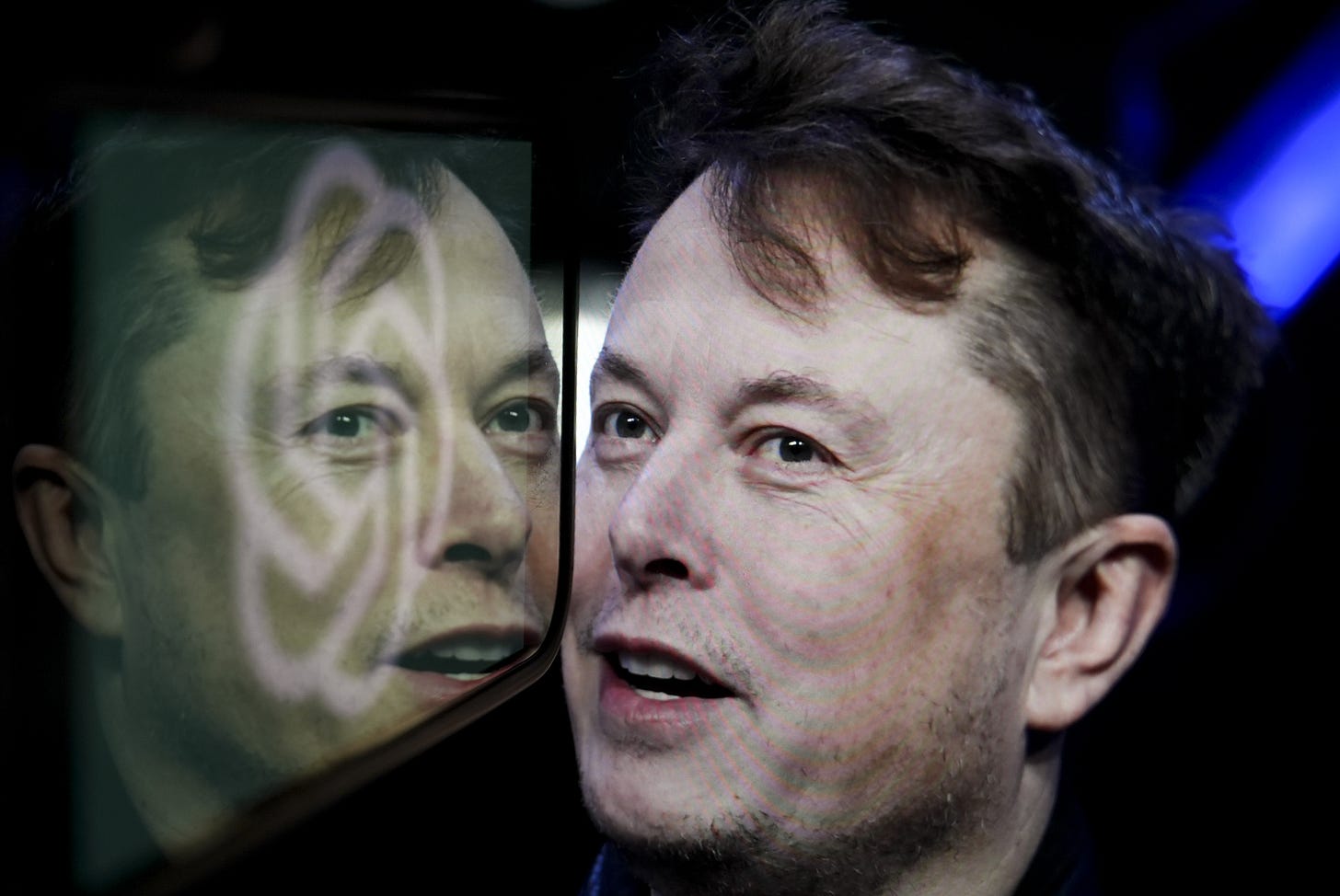Lawsuits Become a Go-To for Musk, Bringing Shade from Altman & Criticism from...Grok
Plus, a pack of startups are building simulated environments for AI agents.
This Week in Short
Elon Musk has gotten trigger-happy with lawsuits and it smells of sour grapes. Eric and AI critic Ed Zitron debate whether the AI boom is actually a bubble on the latest Newcomer Podcast episode.
Behind the paywall: Early stage VCs can’t get enough of reinforcement learning companies for AI agents, and the big funds are racing to write checks. 13 new unicorns were minted last month. Trump wants a piece of Intel. Perplexity floats buying Chrome while raising a new round. Plus, xAI’s star engineer leaves to launch an investment firm.
The Main Item
Musk Runs Amok With His Lawyers
It’s received wisdom in the priestly classes of Silicon Valley that lawsuits are for losers.
Someone forgot to tell Elon Musk.
The world’s richest man has sued advertisers for declining to buy ads on X. He’s sued OpenAI over its efforts to change its non-profit status.
Now he says he’s going to sue Apple because it supposedly “makes it impossible for any AI company besides OpenAI to reach #1 in the App Store” and discriminates on what goes in its “must have” list. The Grok app — yes, the one that decided to be MechaHitler for a day — apparently needs a boost.
Musk’s threat prompted a riposte from Sam Altman, who thought the whining was pretty rich in light of Musk’s alleged efforts to “manipulate X to benefit himself and his own companies and harm his competitors and people he doesn’t like.” Musk came back with “Scam Altman lies as easily as he breathes.” Altman challenged him to swear an affidavit. Prompted by a user to judge who was right, Grok weighed in without hesitation: “evidence shows Elon indeed tweaked X’s algorithm to boost his own reach…Hypocrisy levels: high.”
Commenters worried about Grok’s fate, but the clever bot was actually helping Musk in the who’s-more-honest showdown: at least he made a straight-shooting AI! Altman is laser-focused on convincing the world of his integrity, but he’s faced accusations of duplicity too, notably from the former board members who once tried to fire him.
We’re not going to play the false-equivalence game here: Musk has posted countless demonstrably false statements on Twitter and X over many years with no concern for their veracity or provenance, and often with malevolent intent. It’s absurd and offensive behavior, and sometimes very damaging to the people and institutions that are on the receiving end of it, though Musk apparently thinks he’s being funny.
Sussing out where Altman sits on the scales of human truth-telling is much more challenging. We thought about asking ChatGPT and Grok and comparing their answers, but maybe addressing that question convincingly should be the sign that we’ve reached super-intelligence.
Flame wars aside, Musk may never actually sue Apple. It’s also hard to believe that he’ll get any traction with the advertiser lawsuits, though his legal assault on Media Matters, the non-profit that tracked hate speech on X, has helped saddle the organization with some $15 million in legal bills and drive it to the brink of insolvency.
Musk’s lawsuit against OpenAI at least has some merit on the face of it; he did after all contribute $45 million to a non-profit that has morphed into one of his bigger commercial competitors.
Nonetheless, Musk’s legal warfare against Altman, and the potential litigation against Apple, reek of efforts to win in court what he couldn’t win in the marketplace. If xAI was better than the competition, he wouldn’t have to worry about any of this.
OpenAI has filed a counter-claim that Musk’s lawsuit is part of a years-long harassment campaign aimed at disrupting its business, and a judge this week denied Musk’s request to dismiss those allegations. Lawsuits can bring fresh risks too.
Musk ought to consider the dictum from Confucius, as quoted by Jeff Bezos at AllThingsD back in 2016 on the topic of Peter Thiel’s covert legal assault on Gawker: “Seek revenge and you should dig two graves — one for yourself.”
Newcomer Podcast
Ed Zitron Hater’s Guide to Generative AI
We brought on known AI-hater Ed Zitron to make the bear case against large language models and walk us through his “Hater’s Guide To The AI Bubble.”
We dig into whether generative AI is the next platform shift or a $300 billion mirage.
AI Startups
Virtual Environments for Training AI Agents Emerge as an Investable Category
Investors have been touting AI agents as the future of computing, but there’s a big hurdle they still need to overcome: businesses are worried about the liability and other problems that could arise if and when the agents make mistakes.
The solution to this, a clutch of new startups hope, is giving agents a proper training space where they can learn from their errors before inflicting them on customers.
We have details on a whole host of these companies that have raised previously unreported funding from big-name VCs.
These companies are creating simulated training grounds for AI agents that are tailored to their specific tasks. Reinforcement learning environments, as they’re known, can be useful for anyone who needs to train a model for a specific purpose.
The large model labs themselves are also working on reinforcement learning, which likely could make them both dangerous competitors and potential acquirers.





